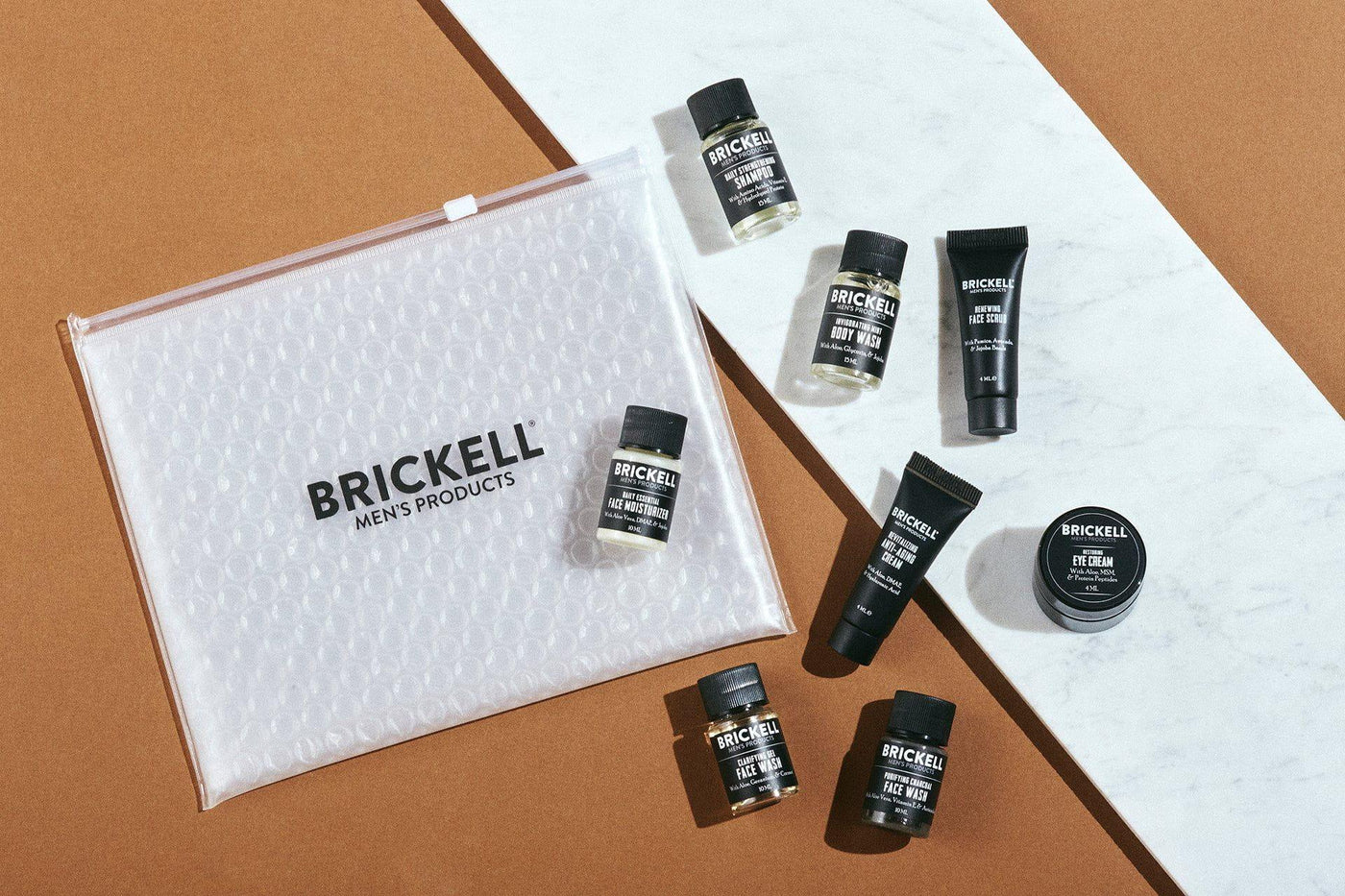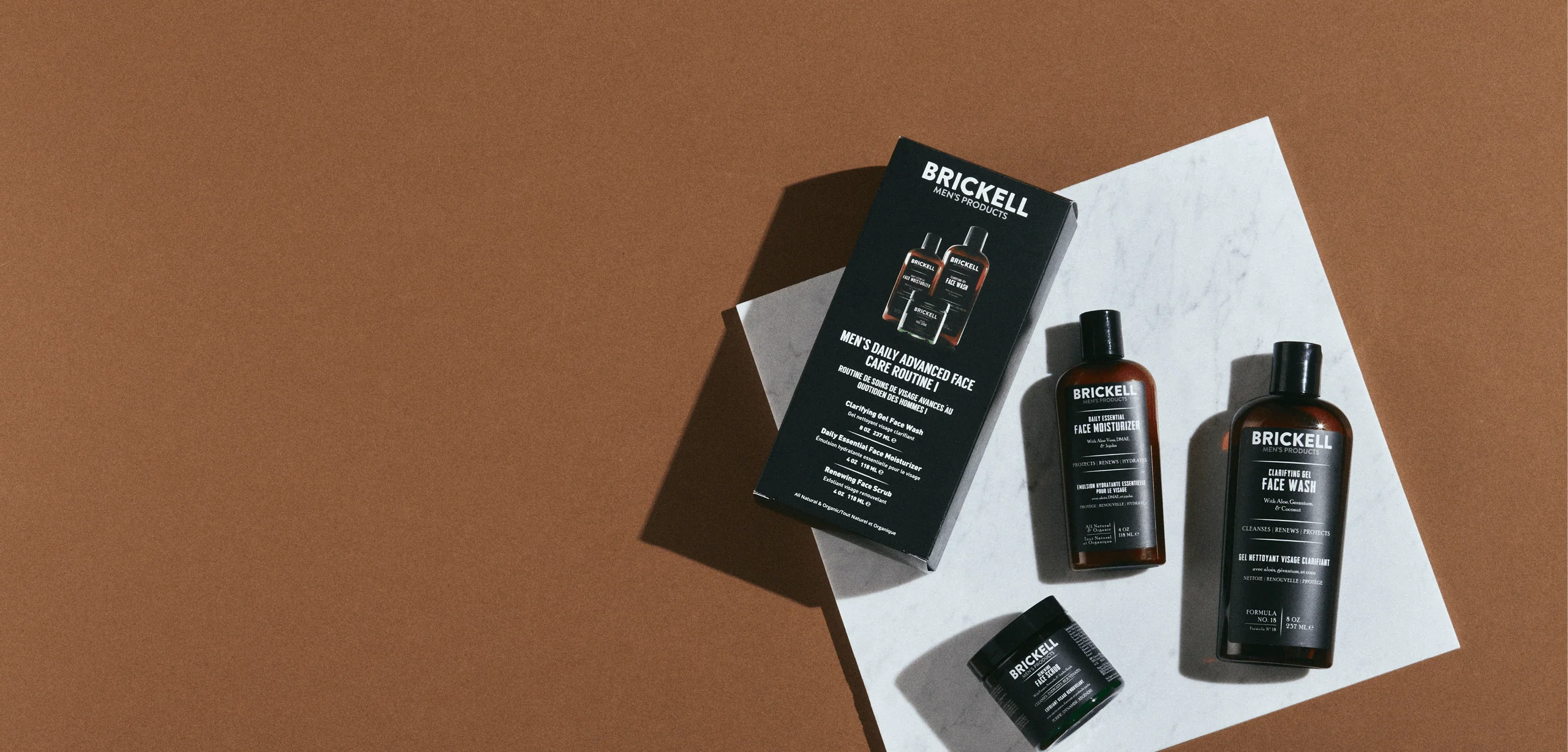The Grooming Manual
Hand Soap vs. Hand Sanitizer: How Does Each Affect Your Skin?

Been washing and sanitizing your hands a lot more than you used to? You may be dealing with dry, flaky, or tight skin as a result.
But why exactly does this happen? And is one product the primary culprit behind your dry hand woes? Here’s what you should know.
Soap vs Sanitizer: The Basics
Hand Soap
Hand soap - a mixture containing fat or oil, water, and an alkali - is the “gold standard” of hand purifying. It doesn’t work by killing germs, but rather by washing them off the skin and down the drain.
So why is it better than water? Germs, dirt, and debris stick to the natural oils on your hands. Oil and water don’t mix, so water won’t bind to the germs and wash them away.
Using soap will because it has both water and fat components. Soap molecules have one side that’s water-loving and one side that’s oil-loving. When you wash with soap, it binds to both water molecules and oil molecules, rinsing everything away extremely effectively.
Hand Sanitizer
Hand sanitizer has become an everyday carry staple because it’s portable and effective at killing germs. It's the ideal go-to when soap and water aren’t readily available.
But how does it work? Hand sanitizers use one of three germ-killing active ingredients: ethyl alcohol (also called ethanol), isopropyl alcohol (isopropanol), or the less popular benzalkonium chloride. There are others, of course, that use “alternative” antiviral or antibacterial ingredients like tea tree oil, but none of these have been proven as effective.
Alcohol functions in hand sanitizer by breaking apart the proteins in the microbes, splitting the cells, and destroying them. Sanitizers with as low as 30% alcohol have been shown to have some efficacy, although concentrations higher than 60% are more effective and work more quickly.
But it's not perfect. Ethanol has been shown to be effective against bacteria like E.coli and staphylococcus saprophyticus (the cause of staph infection). But it’s also been shown to be ineffective against certain viruses and parasites.
It's important to keep in mind that sanitizers kill germs but don’t actually remove dirt or germs from the surface of the skin.
What the Wrong Products Do to Your Skin
What are the drawbacks of repeated sanitizer or hand soap application? This largely depends on the type of hand sanitizer and hand soap that you use.
Hand Soap
When it comes to hand soap, first, it’s important that you find a high-quality product that both cleanses and moisturizes.
Avoid harsh detergents and surfactants that strip the skin without replenishing hydration. These ingredients will:
- Strip away your skin’s natural barrier
- Disrupt your microbiome
- Wash away natural moisture
This will ultimately lead to dryness, redness, itching, flaking, and tightness. It can also allow germs to enter the body more easily, as those natural oils and germs actually act as a barrier to harmful pathogens. Not great.
Hand Sanitizer
Although it can vary from one formula to another, hand sanitizer generally has a high alcohol content. That’s the ingredient proven effective against viruses and bacteria. Alcohol alternatives have shown mixed results at best.
While alcohol does kill germs and viruses, it also damages your natural microbiome and dries your skin out.
Hand soap doesn’t have to include any alcohol to be effective and it can be made with skin-soothing ingredients to ensure it doesn’t disrupt your skin’s balance.
This just isn't possible to the same extent with hand sanitizer. You can add aloe and ensure that the alcohol levels are around 70-80% -- which is less stripping than harsher formulas -- but even that doesn't completely alleviate the concern with dryness.
How to Pick the Right Products and Stop Skin Dryness
Whenever possible, opt for washing your hands with soap. When that's not possible - like when you're on the go or don't have access to water - hand sanitizer is an acceptable backup option. A formula that contains aloe and 70% alcohol is best.
The Best Hand Soap Ingredients
Look for soap with hydrating, barrier-building, antibacterial, and antiviral ingredients:
- Aloe vera: Restores moisture and vitamins to the skin
- Glycerin: A humectant (drawing water from the environment into the skin) and promotes skin cell maturation.
- Frankincense: A natural essential oil with antiviral benefits
- Tea tree: Antibacterial and antiviral

